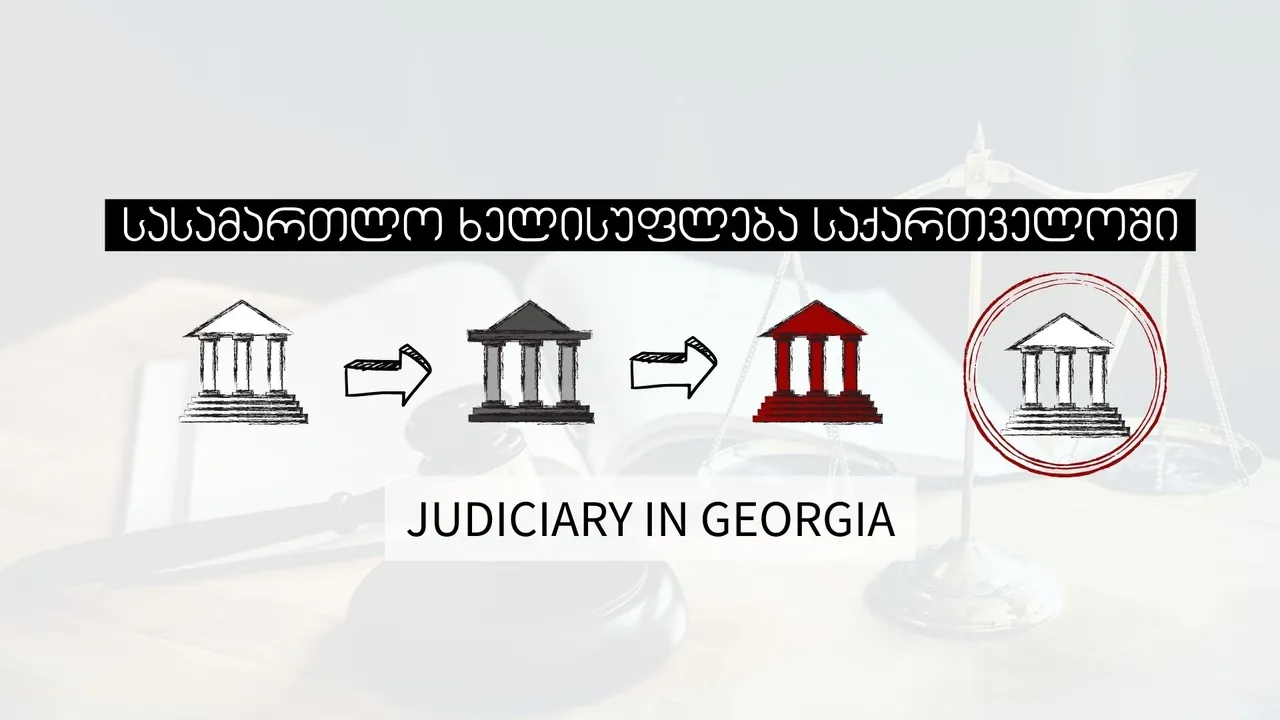Filing a legal case in Georgia may seem complex, especially for foreigners or first-time litigants. However, with a clear understanding of the country’s court structure and filing procedures, the process becomes much more manageable. Whether you’re pursuing a civil claim, enforcing a contract, or appealing an administrative decision, this guide provides a comprehensive overview of how to file a case in Georgia and navigate the Georgia court system.
Understanding the Court System in Georgia
Georgia operates under a four-tiered judicial system, designed to ensure access to justice and protect legal rights through independent review at multiple levels:
- District (City) Courts – First-instance courts that handle civil, administrative, and criminal cases.
- Courts of Appeal – Review decisions from lower courts upon appeal.
- Supreme Court of Georgia – The highest instance for civil, criminal, and administrative disputes (cassation level).
- Constitutional Court of Georgia – Reviews cases involving constitutional rights and compliance of laws with the Constitution.
This hierarchical structure allows litigants to challenge judgments and seek fair outcomes through multiple stages.
Who Can File a Case in Georgia?
Anyone, whether a citizen or a foreign national, can initiate legal proceedings in Georgia. You may file a case as:
- A private individual
- A legal entity (company or NGO)
- A foreign investor or non-resident (through a local representative)
Most civil and administrative cases do not require a lawyer at the first-instance level, but legal representation becomes mandatory at the appeal and cassation stages.
Filing a Case Remotely with Nomos Georgia
If you are located outside of Georgia and unable to attend court in person, Nomos Georgia offers full legal support remotely. Through a Power of Attorney (POA), our firm can represent you throughout the entire legal process — from preparing your claim to submitting documents, attending hearings, and enforcing judgments.
This allows clients from Europe, the U.S., the Middle East, and elsewhere to pursue justice in Georgian courts without the need to travel. Our services are ideal for property disputes, contract breaches, business litigation, and other civil matters.
Types of Cases You Can File
The most common types of legal cases filed in Georgia include:
- Civil cases: contractual disputes, property claims, compensation for damages
- Administrative cases: disputes with public authorities or government decisions
- Criminal cases: prosecuted by the state, though private individuals can initiate a complaint
- Family law cases: divorce, child custody, alimony, inheritance disputes
It is important to file your case with the correct court based on subject matter and location (jurisdiction).
Preparing to File a Case: Documentation and Language
Required Documents
Before filing a case, gather the following:
- Completed claim application in Georgian (court-approved form)
- Copies of identity documents (passport or ID)
- Written evidence (contracts, correspondence, receipts, etc.)
- Proof of payment of the court fee
- Translation of any foreign-language documents into Georgian (certified)
All documents must be submitted in official Georgian language. Foreign plaintiffs may appoint a legal representative or translator.
State Fees and Costs
Filing a case in Georgia requires payment of a state court fee, which varies based on:
- Claim amount (for monetary disputes)
- Type of case (civil, administrative, etc.)
- Stage of proceedings
Fees are payable at the time of filing. If you are financially unable to pay, you may apply to the court for partial or full exemption.
Step-by-Step Guide: How to File a Case in Georgia
Step 1: Identify the Right Court
Determine the appropriate court of jurisdiction:
- For civil matters: file with the District/City Court in the region where the defendant resides.
- For disputes with government bodies: file with the Administrative Chamber.
Step 2: Draft and Submit the Claim
Prepare a statement of claim including:
- Names and details of the parties
- Description of the dispute
- Legal basis for the claim
- List of evidence
- Relief or compensation sought
Submit three printed copies to the relevant court:
- One for the court
- One for the defendant(s)
- One for service records

Step 3: Pay the Court Fee
Transfer the state fee to the official treasury account and attach the payment receipt to your filing documents.
Step 4: File the Case with the Court Registry
Visit the court’s chancellery office and file your case. You will receive a case registration number and access to the court’s electronic case portal where updates and hearing dates are published.
Step 5: Serving the Defendant
Once accepted, the court will arrange for the official delivery of documents to the opposing party. Service is typically completed via:
- Judicial couriers
- Registered mail
- Electronic notification (in some cases)
If the defendant resides abroad, the court may use diplomatic channels or international procedures (e.g., under the Hague Convention).
What Happens After Filing?
Once the defendant has been served, the court schedules a preliminary hearing. If both parties appear, the court proceeds with examination. If the defendant fails to appear, the court may issue a default judgment in favor of the plaintiff.
Civil and administrative cases typically take:
- 6–12 months in first-instance courts
- 3–6 months for appeals
- Longer for cassation or constitutional reviews
Hearings are conducted in Georgian and may require interpretation if a party does not speak the language.
Appeals and Cassation
If you disagree with the court’s decision, you can file an appeal within:
- 14 days for civil cases
- 1 month for administrative matters
Appeals are reviewed by the Court of Appeals. If needed, a final challenge can be submitted to the Supreme Court, though not all cases qualify for cassation review.
Enforcing a Court Decision
After a final judgment is issued, enforcement is carried out by the National Bureau of Enforcement of Georgia. If the losing party fails to comply voluntarily, enforcement officers may:
- Freeze bank accounts
- Seize and auction property
- Impose fines or legal penalties
Court decisions in Georgia are legally binding and enforceable within the country.
Alternative Dispute Resolution (ADR)
Before filing a court case, you may consider mediation or arbitration, which are legally recognized in Georgia and often faster and more cost-effective.
- Mediation: voluntary negotiation with a neutral third party
- Arbitration: private tribunal decision, commonly used in commercial disputes
Both are encouraged by the judiciary and may be initiated before or during a court case.
Conclusion
Georgia’s judicial system offers a clear and structured path for resolving disputes, whether they involve business, property, contracts, or state authorities. Thanks to streamlined processes, electronic access to court materials, and legal reforms, foreign nationals can now file lawsuits in Georgia without being physically present.
With the support of firms like Nomos Georgia, you can confidently initiate a case remotely using a Power of Attorney, ensuring that your legal rights are protected and enforced—even from abroad.
For more information or to begin your case, reach out to our team at Nomos Georgia for full-service legal support in court representation, dispute resolution, and case management.

